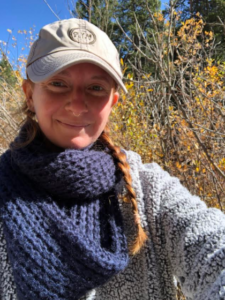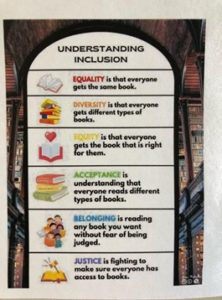On Belonging by Amber Peretz
Tomorrow will be my 29th birthday. September 14th.
This time last year I was moving out of my apartment in St. Petersburg, Florida and preparing to move to Montana where an AmeriCorps VISTA position was waiting for me at the MSU Billings Native American Achievement Center.
At the time of my move, there were some very big questions on my mind- questions that more truthfully stemmed from my heart. There was this feeling that although Florida would always be my home, it seemed to be pushing me away for the time being. My family would joke that it didn’t need to push me across the entire country. But as I reflect on this past year, I know that it was precisely in Billings, Montana where I was meant to find some of the answers to what I was looking for.
What seemed to be at the root of these questions was this topic around belonging. Where do I belong? To whom do I belong? What does it feel like in my body to belong? What are different notions of belonging?
Oddly enough, it was also around this time that the term “belonging” started trending in the field of higher education. Often found adjacent to topics of Diversity, Equity, and Inclusion, belonging had become a buzzword. And anyone who has spent time inside the US System of Education knows that despite their positive intent, buzzwords have the unique potential of becoming relentless, lifeless shells of their original definitions & purposes. In other words, belonging became another strategic plan initiative- a type of quick fix for “some of the most severe student issues facing higher education today.”
Naturally, as someone going through their own issues around belonging, I reflected long & hard around what this word meant in relation to university campuses & their students, specifically Students of Color. And contextually speaking, in respect to our Native students at MSUB.
There were these graphics floating around campus. And for the most part I thought they were helpful for folks to more fully understand diversity, equity, inclusion, and belonging.
This idea of wearing or reading what you want to without being judged. Being who you are without fear of judgment. It sounds really good, right?
Of course. But, I did have some questions.
It made me wonder, what if I brought my Jewish Magic and Superstition book onto campus. How can I trust that folks aren’t passing judgment? Would it matter to me if folks were judging? And, how cool would it be if I met a bunch of other people reading the same book as me?!
To me, these questions held a certain kind of relevance. They brought me to more university-based questions: How do we foster a culture on campus where faculty, staff, and students react with respectful curiosity in place of judgment when they come across someone or something they don’t understand? How do we promote students’ sense of self so that when they are inevitably faced with judgment, they have the resources & skills to respond in empowered ways? And lastly, how do we strategically shift university demographics so that all students, staff, & faculty can see & feel themselves reflected in the general MSUB population?
Divya Balakrishnan, a yoga teacher I follow on YouTube, once posed the question, “When is it safe to seek belonging? And how do we do that?”
In a world where most of us have been socialized to instantaneously categorize & judge one another, the Native American Achievement Center at MSUB was one of the first places I felt safe in seeking belonging. (I had met individuals who made me feel safe, but never whole spaces.) My supervisor and team continue to show me consistent patience, genuine encouragement to find and use my voice, and grace when I make mistakes. They are willing to have difficult conversations, to which they show up in a present way instead of defensively. And, the way in which prayer & intention live at the center of our work created a shift for me as well. Not to romanticize any one space, but it feels important to describe how this environment has been different for me as compared to education’s typical classroom settings.
Coming back full circle to some of my own personal reflections on belonging. As a white, middle-class person in the United States, most of the spaces I’ve occupied have in fact reflected my own race & cultural norms. Still, however, I was unable to capture that sense of belonging for myself. This spoke to a larger issue- the fact that I didn’t belong to myself. I may have belonged to the categories that I and others bestowed upon me, but those categories never defined me down to my essence. As I discover more of what that even means, I know that a sense of belonging relies more on my ability to come home to myself than the external world trying to instill belonging unto me.
I believe that there is way more to belonging than the mainstream conversation has allowed for thus far. I also believe that belonging holds immense power that we have yet to feel into. And it might benefit our students if university campuses started viewing belonging in more diverse ways & respecting it as the massively complex phenomenon that it is. Maybe a good place to start is by sitting with that simple question, “Do I belong to myself?” (There’s no right or wrong answer.) Who knows what might come from it.
I’ll end with a quote I love by Alan Watts-
“Only when one is healthy in their individuality can they be in community, and only when the difference and diversity of the other is acknowledged and respected, can justice truly come into play.”
Thank you for reading my thoughts on belonging.

 Blog
Blog 
